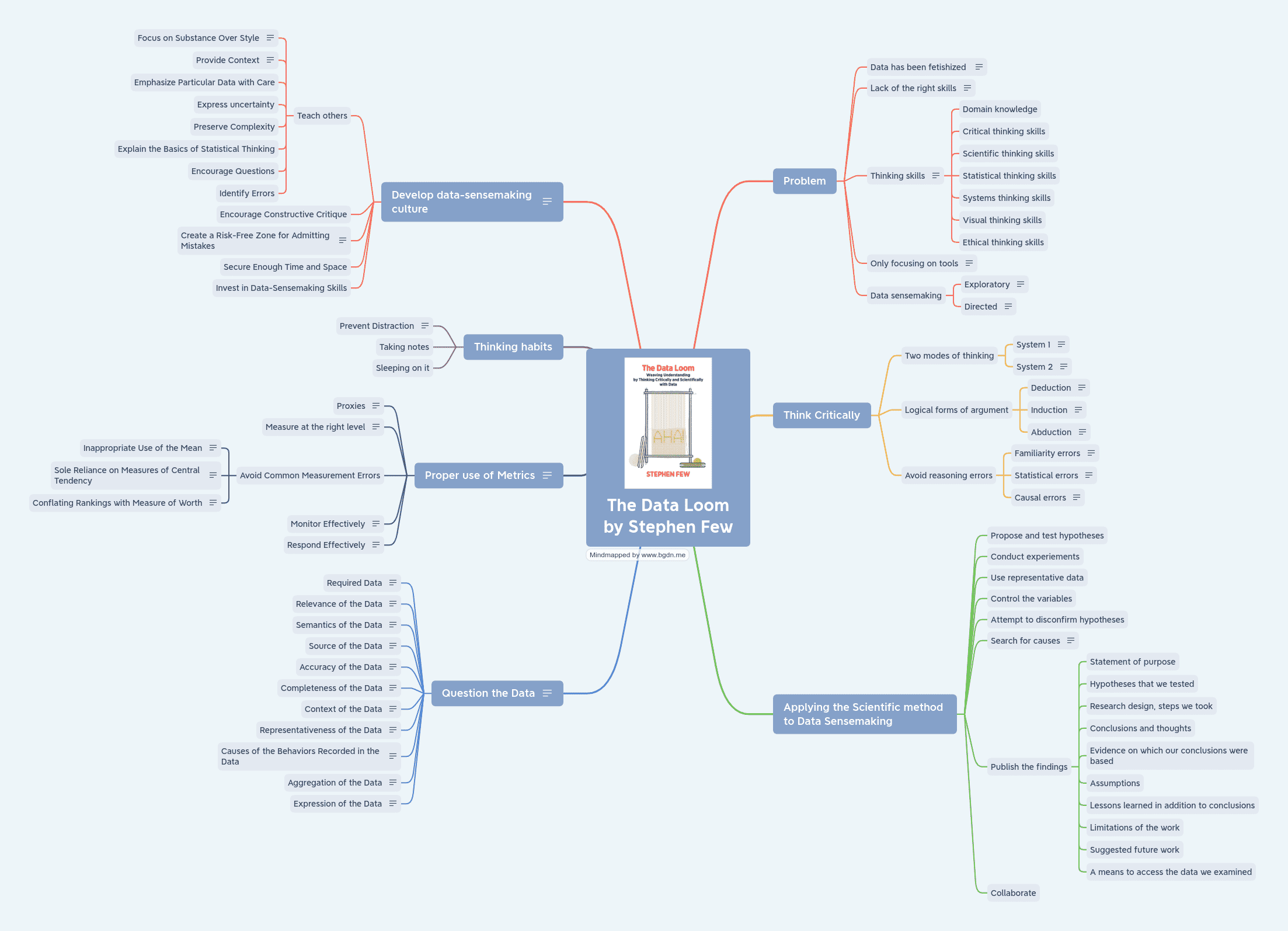- Sun 28 February 2021
- Books
Stephen Few, who has written excellent books on visualizing numerical data, focuses on data sensemaking in this book. The author argues: mastering modern analysis tools is not enough to understand the data; we still need to train the thinking skills. Most important of these are critical and scientific thinking skills. He invites us to follow the scientific method, as well as question the data so that we have a better chance to get accurate, meaningful answers. At the same time, Stephen warns us about metric abuse and provides guidance on how to measure what matters, avoiding common measurement errors. Finally, the book describes thinking habits and general guidelines for how to develop a culture of data sensemaking in your organization.
This is a short book, so it covers all these listed topics very high-level. Nevertheless, this is a good introduction to data sensemaking as such. The book helps you see why it is important to invest time in the thinking skills. And it shows areas for further development in this direction.
Mindmap
This mindmap is published on XMind gallery.

Further reading
Finally, I've picked out some books mentioned in the book as a course of further immersion into the subject of data sensemaking. Here's the list:
- Don't Believe Everything You Think by Thomas Kida
- How We Think by John Dewey
- Critical Thinking by Richard Paul and Linda Elder
- Thinking, Fast and Slow by Daniel Kahneman
- How We Know What Isn't So by Thomas Gilovich
- Prove It! by Stacey Barr
- The Book of Why by Judea Pearl and Dana Mackenzie
- What the Numbers Say by Derrick Niederman and David Boyum
- The Tyranny of Metrics by Jerry Muller
- How To Measure Anything by Douglas Hubbard